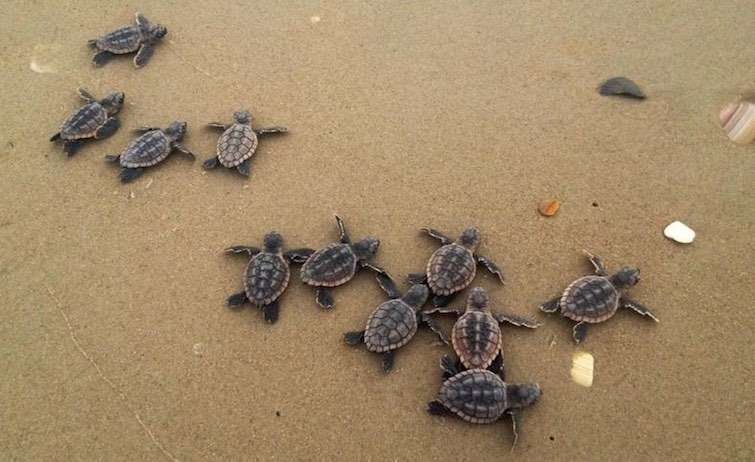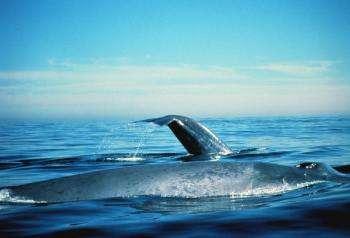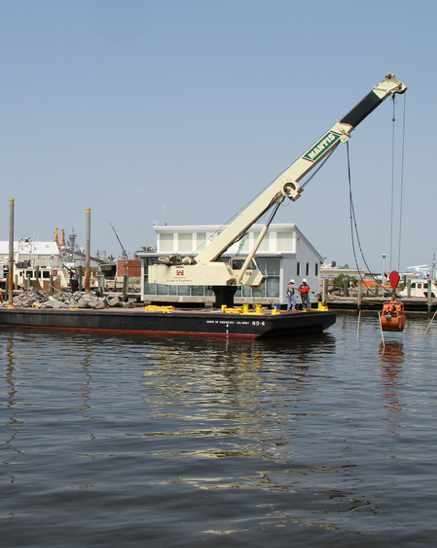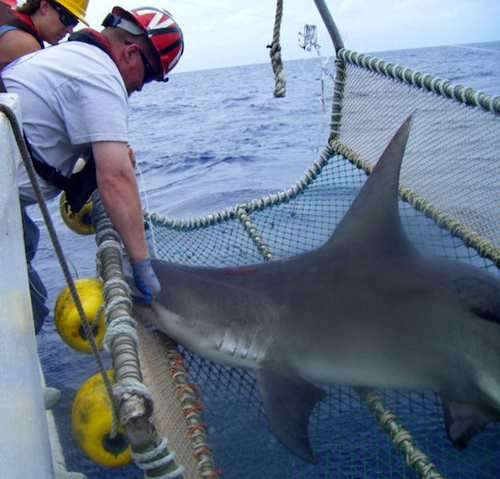Loggerhead Sea Turtles Set Another Nesting Record in Georgia
In 2004, the number of loggerhead sea turtle nests on this prime nesting ground, plunged to 358, the fewest on record. What a difference a decade makes.

In 2004, the number of loggerhead sea turtle nests on this prime nesting ground, plunged to 358, the fewest on record. What a difference a decade makes.

Ten years ago seeing any blue whales in Southern California would have been rare. This year, there already has been more than 500 sightings of the world's largest creature.

Half Moon Reef was once a massive underwater oyster colony in the most productive fishery in Texas, rich with shellfish, blue crabs and shrimp. Today there is barely an oyster left in the 450-acre site. But conservationists are now rebuilding the reef in the heart of Matagorda Bay using huge boulders of Missouri limestone carried down the Mississippi River on 36 barges, building the foundation for revitalizing an entire ecosystem.

A huge orca pod showed-off for whale watchers in Active Pass off the shores of Galiano Island in Canada. They posted the video on YouTube.

Scientists have discovered a new species of shark in the ocean off South Carolina and have named it for the region where it was found.
In the fall of 1972, then-President Richard Nixon signed the Marine Mammal Protection Act, providing sweeping protections for whales, dolphins, seals and other species swimming in U.S. waters whose populations had dwindled due to commercial fishing and accidental killing. More than 40 years later, a new report shows that the law has been very effective.
Federal maritime officials have approved a plan to protect whales in and around San Francisco Bay. Shipping industry representatives joined with whale researchers to establish new cargo lanes that will protect blue whales, the largest marine mammal, in their feeding grounds outside one of the busiest ports in the world.
Pushed by a chorus of 486,900 citizens, the Australian government announced Thursday their intention to create the world's largest marine reserve, a highly protected zone in the Coral Sea stretching almost 200,000 square miles -- a historic moment for ocean conservation in Australia and globally. Australia's Coral Sea, east of the Great Barrier Reef, is one of the last remaining intact tropical ocean ecosystems in the world where populations of large ocean predators - sharks, tunas, and marlin - have not been severely reduced. The waters are home to healthy coral reefs, atolls, cays, and islands that provide shelter to reef fish, sea turtles, and seabirds.
Off the coast of Bar Harbor, a humpback whale is finally free after rescuers took hours to disentangled the fishing gear so it could swim away.
The little lantern fish, Symbolophorus, are smaller than your finger. Every night, all around the world, huge numbers of glowing fish rise from the depths of the sea, eat heaps of carbon-rich plankton, and then drop back down again sealing the carbon in their waste.
Countries fishing the Eastern Pacific Ocean for bluefin tuna have heeded scientific advice agreeing to almost halve their fishing quotas for the prized but beleaguered fish.
Google Founder Eric Schmidt and his wife, who have already invested both time and money in ocean health issues, presented a $10 million gift to the Monterey Bay Aquarium to support their Seafood Watch program that pushes for globally sustainable seafood.
Adidas is partnering with an environmental group to create footwear from recycled ocean trash, like illegal deep-sea fishing nets.
Environmentalists are re-establishing an oyster colony at Barnegat Bay in New Jersey to filter impurities from water, and harden the shore against future storms.
With the stroke of a pen today, President Bush will designate three new areas in the Pacific as Marine National Monuments to create the largest area of ocean protection in the world, measuring 195,000 square miles. The act bans commercial fishing in the coral reef ecosystems within 50 nautical miles around the islands and protects them from oil and gas extraction.
In one of nature's best comeback stories, endangered green sea turtles have multiplied in Florida during the past two decades and are now thriving in protected waters. Reported nests have increased more than sixfold since 1990.
Ecover, the green cleaning brand, said on Thursday it will use plastic waste retrieved from the sea to create an entirely new type of sustainable and recyclable plastic bottle. The Belgian company is working with plastic manufacturer Logoplaste to combine plastic trawled from the sea with a plastic made from sugar cane ('Plant-astic') and recycled plastic, in what it is calling a world-first for packaging.
These small, rabbit-like creatures are actually sea slugs whose fluffy "coats" and pointy ears have earned them the nickname "sea bunnies."
A diver in the Canary Islands had a whale of a time freeing a 45-foot-mammal from entanglement – for over an hour.
A pair of brothers-in-law may have raised more than enough needed to buy a pristine, private beach and open it to the public.
Recent Stories
A Heartfelt Reminder to Appreciate the Ones We Love
Cherish the Woman Who Stands by You
Breaking Generational Cycles of Pain
Living by Your Own Values, Not Others' Approval
When Life Brings Rain, It’s Okay to Rest
Before You Judge Someone's Life, Take a Moment to Walk in Their Shoes.
A Friend Who Spreads Gossip is Not a True Friend at All
The Value of Human Connection Over Digital Convenience
The Quiet Kind of Love
One Day, Your Mom Won’t Call You Anymore
I’ve reached a point in my life...
Happiness is a mindset, a conscious choice we make every day